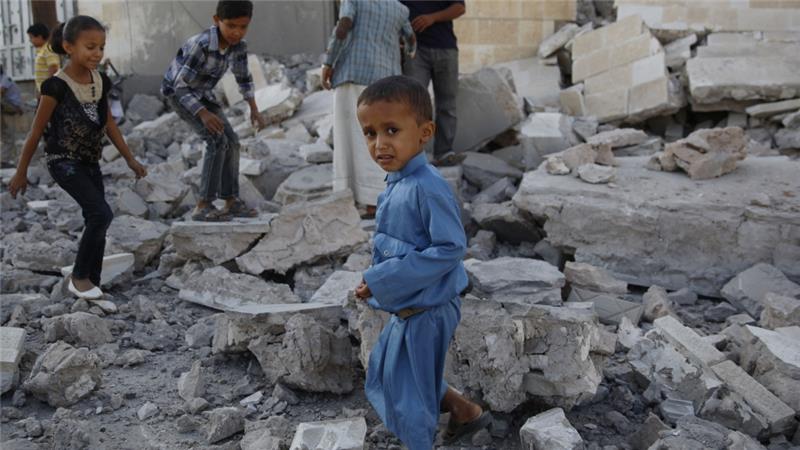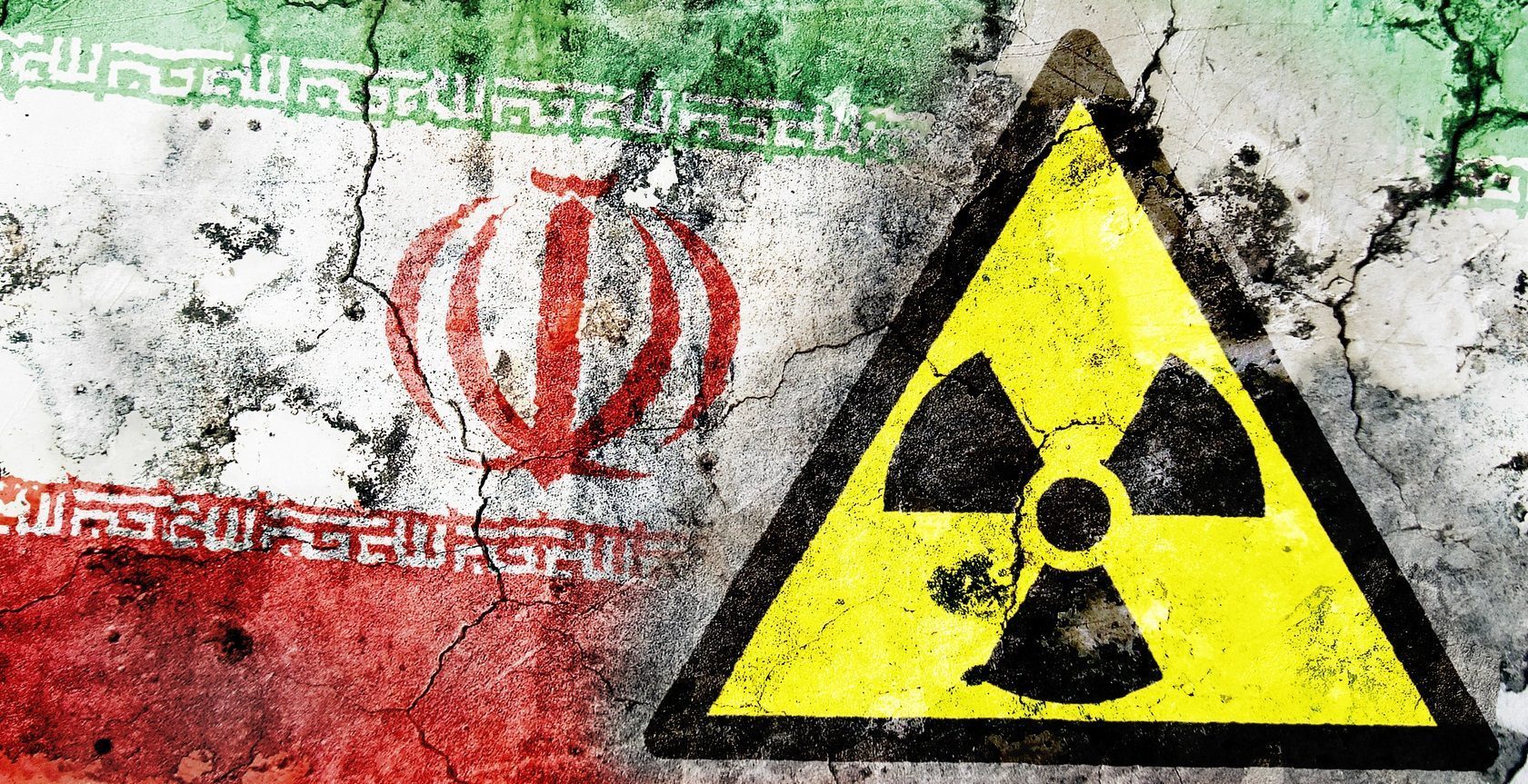
Russian or Syrian warplanes knocked two hospitals out of service in the besieged rebel sector of Aleppo on Wednesday as UN chief Ban Ki-moon said these actions are equal to war crimes.
Assad regime, backed by Russia, said on Thursday it was starting a new wide offensive to recapture the rebel-held parts of Aleppo after a week-long ceasefire was declared officially over on Monday. the offensive includes a ground assault, artillery bombardment, and intensive airstrikes.
Since 19 September, more than 450 civilians have been killed and more than 1700 injured in rebel-held areas of Aleppo province, including the besieged eastern part of the city, Civil defense workers said.
The M2 and M10 hospitals, codenames used by local doctors to obscure the locations of the facilities, were hit at about 4am, and the former again at about 10am, by airstrikes and artillery shells.
UN chief Ban Ki-moon warned on Wednesday that attacks on medical facilities were war crimes.
Speaking at the United Nations, Secretary-General Ban said: “This is a war against Syria’s health workers. Deliberate attacks on hospitals are war crimes. Denying people access to essential health care violates international humanitarian law.
“Imagine the destruction. People with their limbs blown off, children in terrible pain with no relief… Imagine a slaughterhouse. This is worse. Even a slaughterhouse is more humane.”
Citing the Physicians for Human Rights group, Ban said 95 percent of medical workers in Aleppo before the war have been killed, detained, or fled the fighting.
Kieran Dwyer, Syria spokesman for UNICEF, said there were only 30 doctors left in eastern Aleppo for a population of 250,000 – 100,000 of those children. Medical supplies have run out.
“There are so many injured children and other civilians from these attacks that they cannot treat the most severely wounded anymore,” Dwyer told Al Jazeera. “They are … left to die.”
Zaher Sahloul, a senior adviser for the Syrian American Medical Society, which supports both of the hospitals bombed overnight, said: “It is extermination of a major city by starving and killing its 85,000 children using all modern and middle ages weaponries.”
In a statement, Unicef said at least 96 children had been killed and 223 injured in eastern Aleppo since Friday after a ceasefire brokered by Washington and Moscow broke down in mutual recrimination.
“The children of Aleppo are trapped in a living nightmare,” said the Unicef deputy chief, Justin Forsyth. “There are no words left to describe the suffering they are experiencing.”

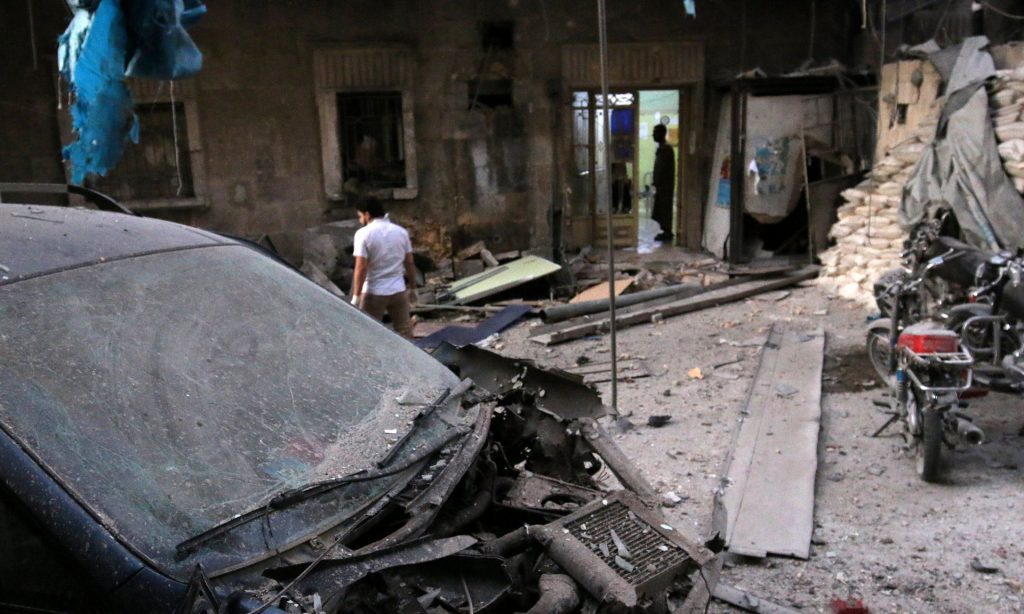

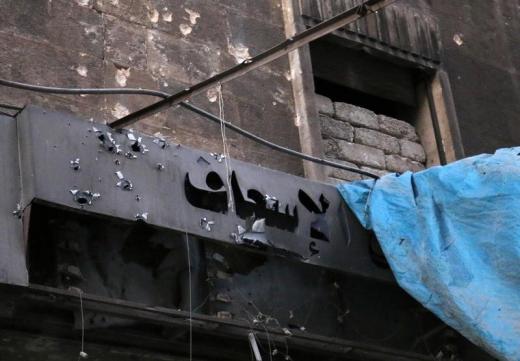
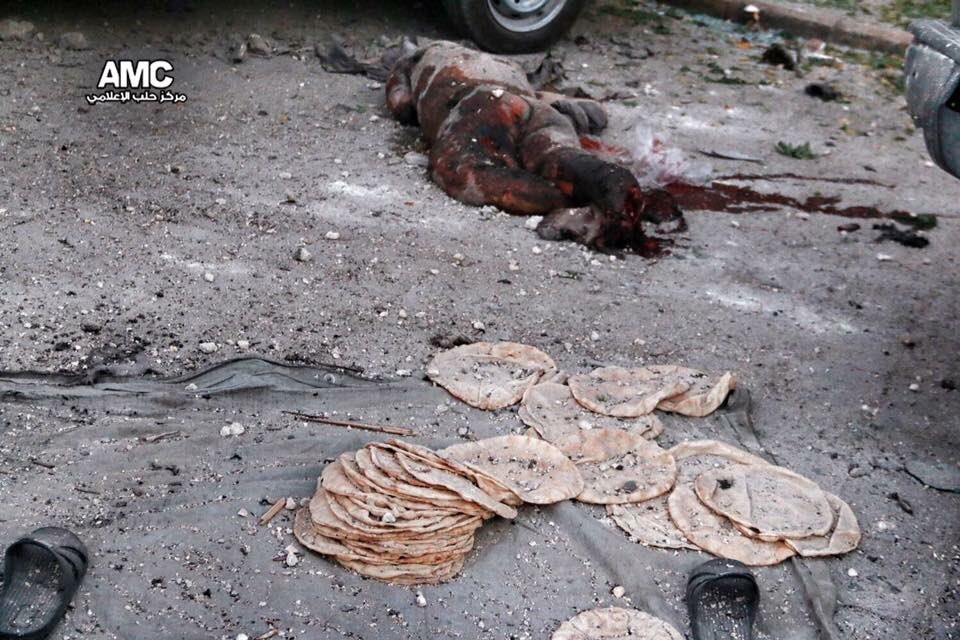
Tell the world to wake up
“The warplane flew over us and directly started dropping its missiles … at around 4 a.m.,” Mohammad Abu Rajab, a radiologist at the M10 hospital, the largest trauma hospital in the city’s rebel-held sector, told Reuters.
“Rubble fell in on the patients in the intensive care unit.”
Medics took shelter in the hospital basement during the mid-morning attack, sending calls for aid as they hid until government planes had retreated.
“If the hospital falls on top of us, come pull us out from under the rubble but do not take pictures,” said Bara’a, a nurse in M2, in a message from the shelter to a discussion group of journalists and doctors in eastern Aleppo. “Please don’t take pictures; we won’t gain anything from it and our dignity is too precious.”
“These bombings are systematic and direct against hospitals that are serving besieged Aleppo,” said Mohammad Abu Rajab, a doctor at the M2. “Today we are saddened. Grief has filled the faces of all the doctors because we can no longer treat these patients. We pray to God that we are able to work again.”
“You cannot imagine what we see every day: children who are coming to us as body parts. We collect the body parts and wrap them in shrouds and bury them,” said Bara’a.
“Tell the world to wake up, to wake their consciences. Where are you? When Palestine was being destroyed everyone got involved. Why are Syria’s children being forgotten? Nobody is doing anything to reduce this suffering.”
When bombs hit East #Aleppo, Ismail risks his life to save the wounded and recover the dead. This is his story.#BBCPanorama? pic.twitter.com/nHaL4ezQ0a
— Panorama ? (@BBCPanorama) September 26, 2016
The Assad regime forces, backed by Russian air power, Iranian ground forces and Shi’ite militia fighters from Iran, Iraq and Lebanon, has been tightening its grip on rebel-held districts of Aleppo this year, and this summer achieved a long-held goal of fully encircling the area.
Recovering full control of the rebels’ last significant urban area would be the most important victory of the war so far for Assad, strengthening his control over Syria’s most populous and strategically important regions.
The Syrian crisis began as a peaceful demonstration against the injustice in Syria. Assad regime used to fire power and violence against the civilians and led to armed resistance. 450.000 Syrians lost their lives in the past five years according to UN estimates, and more than 12 million have lost their homes.

